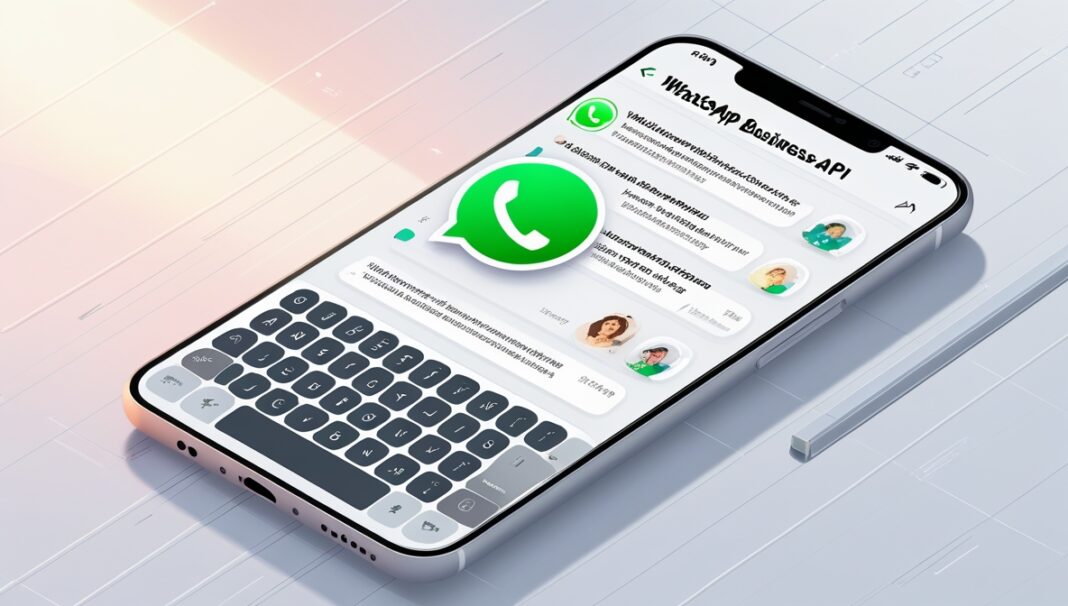In 2025, businesses operate in a hyperconnected world where users are more privacy-aware than ever. With millions of daily conversations happening via platforms like WhatsApp, ensuring data security is not just a regulatory checkbox — it’s a trust imperative.
The WhatsApp Business API has revolutionized how companies interact with customers, enabling real-time support, marketing, and transactions at scale. Paired with a WhatsApp chatbot, businesses can automate experiences, qualify leads, resolve issues, and even process purchases all through a conversational interface.
However, as the usage of WhatsApp chatbots expands, so do the risks of data breaches, message interception, and compliance violations. That’s why securing user data across your WhatsApp Business API integration should be a top priority in 2025.
This article outlines the best practices for securing user data while using the WhatsApp Business API, ensuring your business remains trustworthy, compliant, and resilient.
Why Data Security Matters in WhatsApp Conversations
Every interaction over WhatsApp potentially includes personally identifiable information (PII) such as names, phone numbers, addresses, payment preferences, and more. For industries like healthcare, fintech, and e-commerce, the sensitivity of this data is even higher.
Key concerns include:
- Data leakage due to poor storage or insecure APIs
- Unauthorized access to conversation logs or chatbot responses
- Non-compliance with regulations like GDPR, HIPAA, or India’s DPDP Act
- Phishing or spoofing via unverified business numbers
To mitigate these risks, businesses must take a security-first approach to their WhatsApp chatbot implementations and backend systems.
WhatsApp’s Built-in Security Features (2025)
Before diving into your own practices, it’s important to understand how WhatsApp protects data natively:
End-to-End Encryption
Messages between users and the WhatsApp server are encrypted end-to-end. This means only the sender and the receiver (i.e., your WhatsApp Business account) can read the messages not even Meta can access them.
Verified Business Profiles
Official WhatsApp Business API accounts are marked with a green badge, which helps users verify authenticity and avoid scams.
Secure Media Delivery
Media files sent via WhatsApp are stored temporarily on Meta’s servers with secure, time-bound access URLs.
Despite these features, data security is a shared responsibility. Your systems must protect what happens after messages reach your infrastructure.
Best Practices for Securing User Data in WhatsApp Business API
Let’s look at practical and technical ways to protect user data when using WhatsApp chatbots and APIs.
1. Use HTTPS for All Webhooks and API Requests
Your servers receive incoming messages and send outbound replies through webhooks and REST API calls. Always use HTTPS with TLS 1.2+ to encrypt data in transit and prevent man-in-the-middle attacks.
Use valid SSL certificates
Avoid self-signed certificates in production
Enforce strict TLS configurations
2. Secure Webhook Endpoints
Webhook endpoints are entry points to your system. Harden them against misuse:
- Validate requests using WhatsApp’s signature headers (X-Hub-Signature-256)
- Rate-limit requests to prevent DDoS attacks
- Use IP whitelisting to allow only Meta’s IPs (if feasible)
- Authenticate internal services calling your webhook
3. Encrypt Data at Rest
Store user data such as names, preferences, chat history, or orders only if necessary, and always encrypt sensitive fields in your database.
Recommended practices:
- Use AES-256 encryption for PII
- Store encryption keys in a secure key management system (KMS) like AWS KMS or Azure Key Vault
- Apply row-level encryption for maximum protection
4. Limit Data Retention
WhatsApp requires you to minimize data collection and retention. Set data retention policies based on business need and regulation:
- Auto-delete old conversations (e.g., after 30–90 days)
- Purge inactive user data
- Anonymize data used for analytics
This not only protects user privacy but reduces your liability.
5. Control Access to Message Logs and Chatbot Data
Implement role-based access control (RBAC) across your systems. Ensure that only authorized personnel can:
- View chat histories
- Export or download user data
- Trigger WhatsApp campaigns via chatbot or CRM
Use tools like:
- IAM policies on your cloud
- Audit logs for every data access
- Multi-factor authentication (MFA) for all admin dashboards
6. Use Secure Message Templates
Message templates (e.g., appointment reminders, OTPs, order updates) must be approved by WhatsApp and follow best practices:
- Avoid including sensitive information directly (e.g., full card numbers or health info)
- Use tokens or short codes to represent sensitive data
- Ensure that URLs shared are HTTPS and lead to verified domains
7. Implement Chatbot Security Controls
Your WhatsApp chatbot is the front line of customer interaction — and security:
- Validate inputs to prevent injection attacks
- Limit chatbot data exposure based on user authentication
- Use session timeouts for inactivity
- Avoid storing unnecessary data within the chatbot memory
- Prevent bot spoofing by verifying sender numbers and requests
8. Comply with Local and Global Regulations
By 2025, global and regional data laws have become stricter. Your WhatsApp implementation must comply with:
- GDPR (EU) – Data minimization, user consent, right to erasure
- HIPAA (US, healthcare) – Secure storage and transfer of health data
- DPDP Act (India) – Explicit consent, storage limitation, purpose restriction
Use tools like:
- Consent management platforms (CMPs)
- Data subject access request (DSAR) workflows
- Geo-fencing for data localization
9. Train Your Teams on Data Privacy
Technology is only part of the solution. Your teams — from marketing to support — must understand:
- What data is collected through WhatsApp
- How to handle it responsibly
- What not to share in messages (e.g., passwords, internal links)
- When to escalate a suspected breach
Offer regular training, checklists, and compliance audits.
10. Partner with a Secure BSP
Business Solution Providers (BSPs) like MSG91 offer hosted WhatsApp Business API platforms with built-in security, chatbot builders, and integrations.
Choose a BSP that provides:
- End-to-end encryption support
- Secure hosting (e.g., ISO 27001, SOC2 certified)
- Role-based dashboard access
- Advanced reporting and audit logs
- Automatic failover and backup systems
This allows you to focus on user experience while the platform handles infrastructure security.
Common Security Mistakes to Avoid
Mistake
Impact
Storing chat data in plaintext
High breach risk
Using public cloud storage without encryption
Data leakage
Hardcoding access tokens in code
Easy exploit for attackers
Ignoring consent collection
Regulatory fines
Failing to validate webhook payloads
Opens attack surface
Secure Chats, Stronger Trust
As WhatsApp chatbots become core to customer engagement in 2025, so does the need to secure every message, every interaction, and every byte of user data. From encrypting data to validating webhooks and enforcing access controls, security should be baked into your chatbot architecture not bolted on.
By following the best practices outlined above, you can ensure that your WhatsApp Business API implementation is secure, compliant, and trustworthy allowing you to focus on building powerful, personalized user experiences.
Ready to build secure WhatsApp experiences at scale?
Explore MSG91’s WhatsApp Business API platform — with chatbot automation, secure hosting, and enterprise-grade encryption out of the box.

